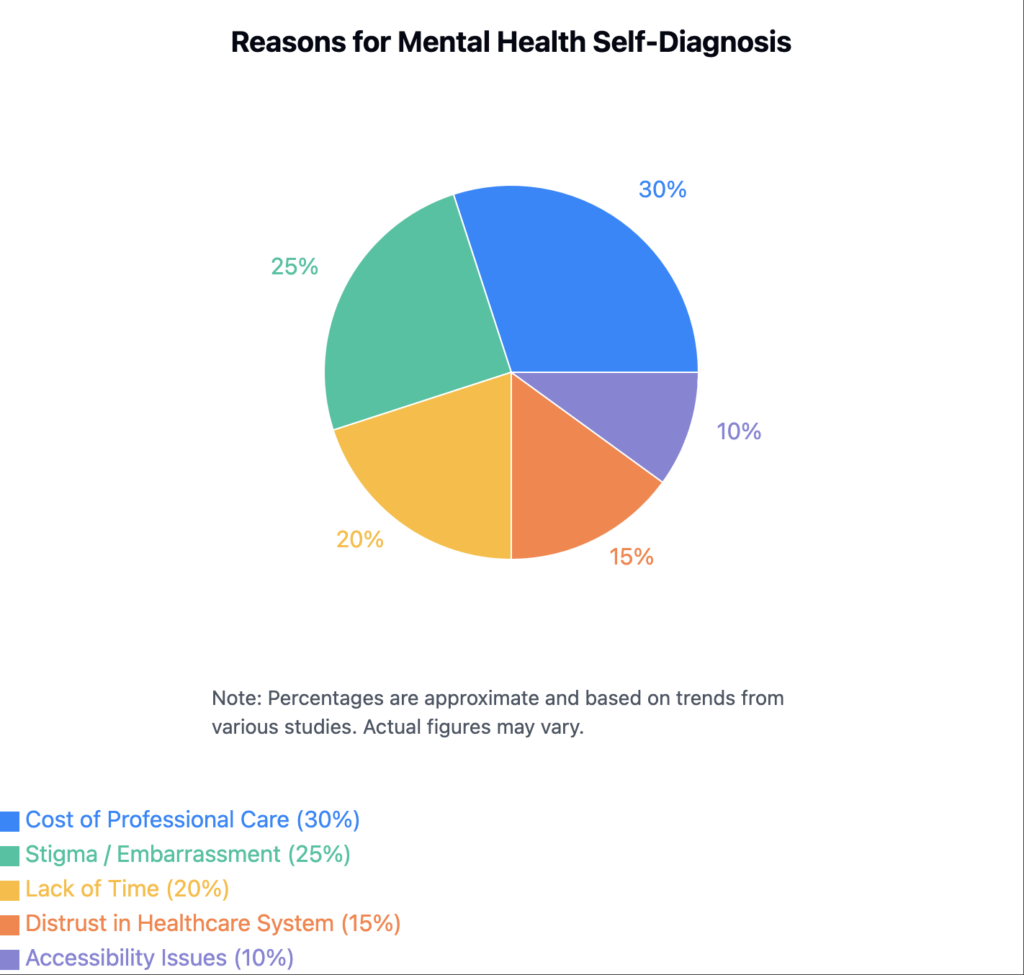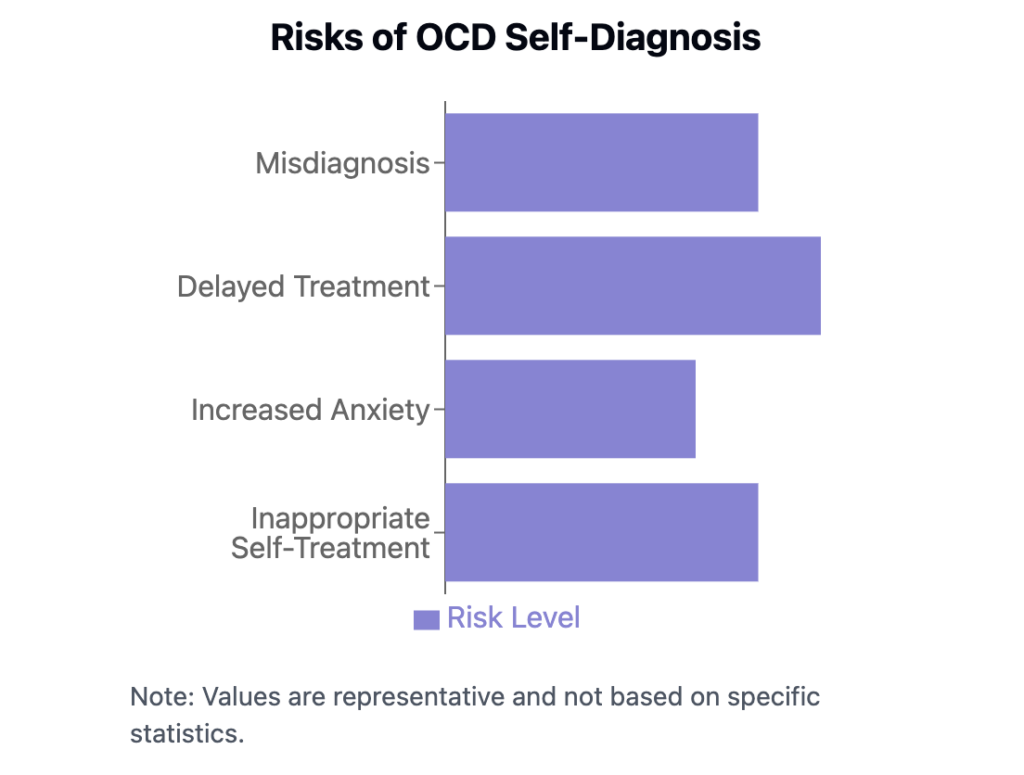Living with OCD during the Holidays: Ruth’s Story
I never realized how different my holiday anxiety was until that Christmas morning three years ago. Standing in my kitchen at 6 AM, I’d already checked the turkey temperature a few times.
My sister Amy found me in tears. The turkey was overcooked because I couldn’t stop checking it, convinced each reading might be wrong.
“Ruth,” she said gently, taking the sponge from my hands. “This isn’t about the spoons, is it?”
That moment of recognition changed everything. It wasn’t about the spoons – it was about the overwhelming need to keep everyone safe, to make everything perfect. The holidays had amplified my OCD to a breaking point.
Today, I still host Christmas dinner, but differently. I have strategies now: a written schedule to avoid excessive checking, permission to use disposable utensils when needed, and most importantly, the ability to tell my family when I’m struggling. The holidays are still challenging, but I’m no longer alone in my journey.
The holiday season, while festive for many, can present unique challenges for individuals with Obsessive-Compulsive Disorder (OCD). This article explores the cognitive mechanisms underlying OCD symptoms during this period and examines how seasonal factors interact with existing patterns of thinking and behavior.
Understanding the Cognitive Foundation of OCD
The Maladaptive Thinking Cycle
At its core, OCD involves a complex interplay of maladaptive cognitive patterns that create and maintain anxiety. These patterns typically follow a distinct sequence:
- Intrusive Thoughts: The cycle often begins with unwanted, intrusive thoughts that feel threatening or distressing. During the holidays, these might center around:
- Fear of contamination from shared food or gatherings
- Worry about perfectly executing holiday traditions
- Concerns about harm coming to loved ones during travel
- Obsessive thoughts about gift-giving “correctness”
- Misinterpretation of Thoughts: The cognitive distortion lies not in having these thoughts (which are common to all humans) but in the meaning attributed to them. People with OCD often exhibit:
- Overestimation of threat
- Inflated sense of responsibility
- Perfectionistic thinking
- Intolerance of uncertainty
- Emotional Response: These misinterpretations trigger intense emotional reactions:
- Heightened anxiety
- Overwhelming guilt
- Intense dread
- Sense of impending doom
Holiday-Specific Cognitive Challenges
Amplification of Existing Patterns
The holiday season can intensify typical OCD cognitive patterns through several mechanisms:
- Increased Responsibility
- Hosting duties trigger heightened sense of responsibility
- Gift-giving creates additional moral responsibility weight
- Family safety concerns become more prominent during travel
- Perfectionism Amplification
- Cultural expectations of “perfect” holidays
- Pressure to maintain traditions exactly
- Social media comparison of holiday experiences
- Uncertainty Multiplication
- Changes in routine
- Unpredictable social situations
- Travel-related variables
- Weather uncertainties
Cognitive Adaptations and Resilience
Building Cognitive Flexibility
Developing resilience during the holiday season involves specific cognitive strategies:
- Metacognitive Awareness
- Recognizing thoughts as mental events, not threats
- Understanding the temporary nature of anxiety
- Identifying cognitive distortions in holiday contexts
- Cognitive Restructuring Techniques
- Challenging perfectionist standards about holidays
- Developing realistic responsibility assessments
- Creating flexible definitions of “good enough”
- Uncertainty Tolerance Building
- Accepting imperfect outcomes
- Embracing variation in traditions
- Developing comfort with schedule changes
Practical Cognitive Management Strategies
Implementing Cognitive Tools
Thought Recording and Analysis
- Tracking holiday-specific triggers
- Documenting cognitive distortions
- Noting successful coping experiences
Behavioral Experiments
- Testing predictions about holiday situations
- Gradually facing feared scenarios
- Building evidence against OCD beliefs
Mindfulness Integration
- Present-moment awareness during activities
- Accepting thoughts without judgment
- Reducing rumination through grounding
The Role of Support Systems
Cognitive Social Support
- Family Education
- Teaching loved ones about OCD thinking patterns
- Communicating needs effectively
- Setting realistic expectations
- Professional Support
- Maintaining therapeutic relationships
- Adjusting treatment plans for holiday stress
- Utilizing crisis resources when needed
Long-Term Cognitive Evolution
Building Sustainable Change
- Learning from Experience
- Recording successful coping strategies
- Identifying personal triggers and patterns
- Developing personalized prevention plans
- Creating New Neural Pathways
- Reinforcing healthy thinking patterns
- Strengthening resilience through practice
- Building confidence through success
Conclusion
The holiday season presents both challenges and opportunities for individuals with OCD. Understanding the cognitive mechanisms at play allows for more effective management of symptoms and development of resilience. By recognizing and actively working with these patterns, individuals can create more enjoyable and manageable holiday experiences while continuing their journey of recovery and growth.
The key lies in approaching the season with self-compassion, realistic expectations, and a toolbox of cognitive strategies that can be adapted to meet the unique challenges of the holiday period. Through consistent practice and support, it’s possible to navigate the season while maintaining mental health and well-being.





